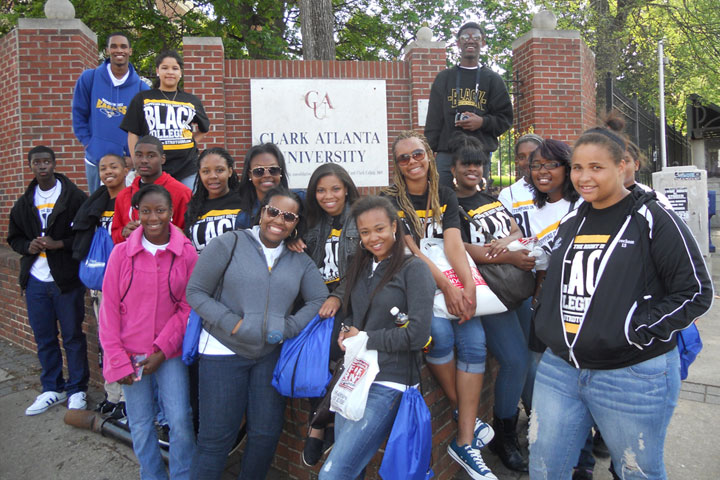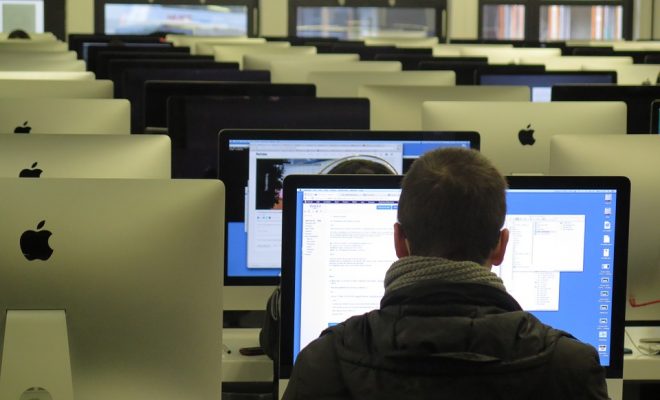Black History Month: An interview with Dr. Namandje Bumpus

**The Edvocate is pleased to publish guest posts as way to fuel important conversations surrounding P-20 education in America. The opinions contained within guest posts are those of the authors and do not necessarily reflect the official opinion of The Edvocate or Dr. Matthew Lynch.**
A guest post by Anwar Dunbar
While black history should be celebrated throughout the year and not just in February, the month provides the opportunity to not only recognize African Americans who have made significant contributions in the past, but also those who are presently making history. As there are numerous African American scientists and innovators who are typically celebrated during black history month in Science, Technology, Engineering and Mathematics (STEM), there are also quite few African American scientists in modern times that are worth recognizing. One such scientist is Dr. Namandje Bumpus (pronounced Na-Mon-Jay), of Johns Hopkins University. On Feb. 1, Dr. Bumpus granted an interview to discuss her background, the path to her current career, and potential avenues for under-represented minorities to get involved in STEM.
Anwar Dunbar: First Namandje, thank you for this opportunity to interview you. My writings in February tend to focus on Black History Month and as a scientist myself I want to shine the light on other African American scientists and innovators who are currently in the trenches expanding our scientific knowledge. Also being in the biological sciences versus the information technology and robotics fields, it’s not so obvious to the lay person what a pharmacologist is, so for all of these reasons I thought about you. With those things being said, let’s start.
Talk a little bit about your background. Where are you from? Were there any scientists in your family who you were exposed to at an early age? Were you always interested in science? If so, was it always biology or were you good at other parts of STEM, mathematics for example?
Namandje Bumpus: I was born in Philadelphia, but grew up in western Massachusetts. There were no scientists in my family. I had an uncle who spent some time working in a lab as an undergraduate student. He wasn’t a scientist, but he still talked to me about how he enjoyed working in the lab. Hearing about his experiences working in a lab was interesting to me. Early on I liked chemistry. My parents and others in my family started getting me chemistry sets when I was in elementary school because I started vocalizing that I thought science would be something interesting to do.
I worked through them (chemistry sets) and I really liked it, and when I was ten (pre-email), I actually wrote a letter to the American Chemical Society to ask about information for careers for chemists. They sent me back lots of brochures and a letter discussing things you could do with a chemistry background. That really got me even more excited just having all of that information and starting to dream about the things that I would do. So I was really more chemistry focused until high school when I finally took a physiology class, and then realized that I wanted to lean more towards biology and physiology.
AD: Talk briefly about your educational path. We overlapped at the University of Michigan’s Department of Pharmacology. How did you get there? What got you interested in research?
NB: I went to Occidental College, a small liberal arts college and did some research there. We didn’t have many labs so I was doing plant research and I really liked that, but I thought that I wanted to do something that was more directly related to human health and physiology, so I started researching certain fields to see what that would be. I came across Pharmacology and it was something that seemed interesting, so the summer after my junior year, I applied for summer research programs in Pharmacology so I could try it out.
Michigan had a summer program called the Charles Ross Program for African American undergraduates to come and work in the Pharmacology Department for a summer, so I applied for that and I got it. That summer before my senior year, I had a really great experience in the department in general. I worked in Dr. Richard Neubig’s lab, and they gave us a short course where I was introduced to the principals of Pharmacology. That really sold me on Pharmacology and since I also had such a great experience in the department, I became really interested in going to the University of Michigan for graduate school.
AD: Not a lot of people understand what doctoral training is like and what it entails. You chose the lab of Dr. Paul Hollenberg which was a Cytochrome-P450 lab and we will discuss that, but what was it like learning how to do research? For example, what was the question you were looking to answer through your thesis project?
NB: In my project I was specifically looking at how genetic variances and mutations that existed in the population could impact their ability to metabolically clear certain drugs that are used clinically. We focused on a drug used to treat depression called Buproprion, and we looked at an HIV drug called Etavirenz. So I was looking at how genetic mutations could affect clearance of the drugs, and how those genetic variances might impact different people having genetic differences in drug-drug interactions.
AD: So would that be in the area of Pharmacogenomics?
NB: Yes.
AD: So as a Postdoctoral scientist did you work on a similar project? Or did you go in a completely different direction?
NB: Yes, my postdoc was somewhat different. I was looking at how lipids and fatty acids are cleared and how we regulate that process. Specifically, I was trying to find which pathways in cells were responsible for the metabolism of fatty acids. In particular, we were interested in stress activated pathways and seeing how activation of these stress pathways impacted expression of Cytochrome P450s that were responsible for metabolism of lipids.
AD: So right now in your own lab, what are you all working on?
NB: Lots of different things. The major focus has still been P450s, but looking at two different areas. The first is seeing how P450s and their metabolites contribute to drug induced toxicities, and to see if there are ways we can mitigate toxicities. We’ve had a focus on drug usage through HIV. The other side of my lab has been helping in collaborative clinical teams to develop drugs for HIV prevention, and trying to figure out how people’s pharmacogenetic variances in drug metabolism can impact their therapeutic responses when they are taking drugs used for HIV prevention.
AD: Now just briefly, from your doctoral studies through your postdoc, were there skills that you had to develop or did you come ready to go with everything? What were your major learning points as you worked through your thesis and your postdoc?
NB: My postdoc was really different. The experimental tools that I learned during my dissertation didn’t really help with what I wanted to do in my postdoc. I wanted to learn something new. Obviously the thinking and knowing how to design experiments was translatable. In graduate school I was doing a lot of mass spectrometry, more chemical-type techniques, and more biochemistry and enzymology. In my postdoc I was doing more in vivo biology and physiology, so I was using mice for the first time. I had never worked with a whole animal before. So I had to do a lot of cell isolation experiments and injections, things I had never done before; so I really had to learn a lot of new techniques for my postdoc. Now in my lab its great because we’re able to combine all of that, so we do a lot of mass spectrometry, biochemical techniques, in vitro mechanistic stuff/enzymology, as well as a lot more whole animal work, and a lot more whole cell work, things that I picked up in my postdoc, and I was able to combine both skill sets to build my program.
AD: And you did your postdoc at?
NB: The Scripps Research Institute.
Click here to read the second portion of this interview.
_____
Anwar Y. Dunbar is a Regulatory Scientist in the Federal Government where he registers and regulates Pesticides. He earned his Ph.D. in Pharmacology from the University of Michigan and his Bachelor’s Degree in General Biology from Johnson C. Smith University. In addition to publishing numerous research articles in competitive scientific journals, he has also published over one hundred articles for the Examiner (www.examiner.com) on numerous education and literacy related topics in the areas of; Current Events and Culture, Higher Education, Financial Literacy, and STEM (Science, Technology, Engineering and Mathematics). He actively mentors youth and works to spread awareness of STEM careers to minority students. He also tutors in the subjects of Biology, Chemistry and Physics. He is a native of Buffalo, NY. He can be contacted via email at [email protected], and can be followed on Twitter @anwaryusef.
Read all of our posts about EdTech and Innovation by clicking here.





